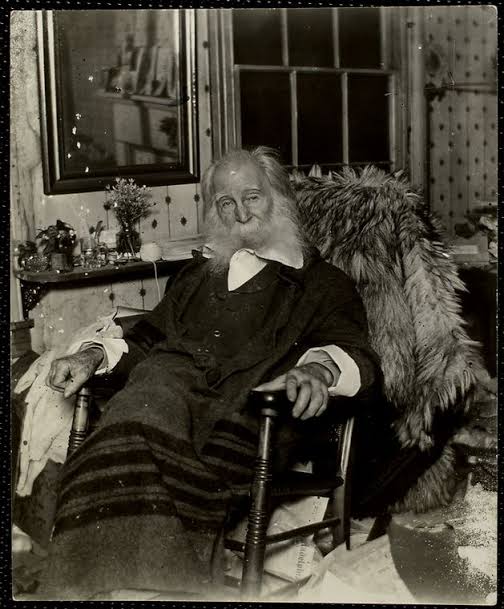
About Walt Whitman's Great Poem
I assume that whomever interested in cinema and poetry must have been read or heard this poem at least once;
O Captain! my Captain! our fearful trip is done,
The ship has weather’d every rack, the prize we sought is won,
The port is near, the bells I hear, the people all exulting,
While follow eyes the steady keel, the vessel grim and daring;
But O heart! heart! heart!
O the bleeding drops of red,
Where on the deck my Captain lies,
Fallen cold and dead.
O Captain! my Captain! rise up and hear the bells;
Rise up—for you the flag is flung—for you the bugle trills,
For you bouquets and ribbon’d wreaths—for you the shores a-crowding,
For you they call, the swaying mass, their eager faces turning;
Here Captain! dear father!
This arm beneath your head!
It is some dream that on the deck,
You’ve fallen cold and dead.
My Captain does not answer, his lips are pale and still,
My father does not feel my arm, he has no pulse nor will,
The ship is anchor’d safe and sound, its voyage closed and done,
From fearful trip the victor ship comes in with object won;
Exult O shores, and ring O bells!
But I with mournful tread,
Walk the deck my Captain lies,
Fallen cold and dead.
The immense depiction of grief here is astonishing. Almost petrifying with depth of loss. Whitman's elegy was for Abraham Lincoln, yet it painted an universal canvas for the feeling it provides. The ship got through the civil war. So as the Union has become preserved just as well as the war ended. There was national exult. There was also anguish as well. A soul that feels the absence of father.
Whitman was not far from the experiences of civil war in 1862, his brother was wounded at Fredericksburg and Whitman went there at 1862 and stood for some time until he took a temporary post in the paymaster's office, even spent his free time by visiting wounded and dying soldiers in Washington hospitals and using his salary to get some small gifts for Confederate and Union soldiers alike. Especially because of the mental depression and bodily suffering he saw in the wards. His desire to spread awareness for the civil war was effective.
Yet there was a catch.
Even though he never met him, he was wounded when his father, captain and the helmsman of the Union died. That lost was what put him in a Victorian sentimentality in this medium of him.
But this is just the tip of the iceberg.
His poetry was always allegorical. This was beyond allegory, his work offers us an experience of such a loss most of us can feel very few times. A strong, terrifying experience. As in the poem he shouts with such disbelief, such innocence at the first stanza. Without any help but the end of his wit against the situation. Even in such a point that he still expects an answer to his words. There is none. None from whom he waits.
There his father lays on the ground, powerless. Once a kindred spirit embodied with such flesh, now among the blood. A crowd, exulted, in fever of victory. A life that has been dedicated to surpass an era which gets to a point that has been desired from the start. Yet at what cost? Whitman's innocent eyes in the allegorical plane recognizes the situation now. The goal has been achieved. Thus, a sacrifice has been made. So he whom in anguish tries to find a way, only to let the flesh find comfort. Offers his arm under his head, only thing that is left for him.
Himself.
At that point, even this could not save the captain. The captain was pale and his lips were not moving at all. He was safe, the trip was done. Crowd was chanting the name of captain. Tears were surpassing the hopeful gazes through the ship. Yet there was no comfort for Whitman, his arm was not felt by anyone. His eyes were fixed in shock at his captain. Captain was dead. Cold and pale, dead. Even though he had recognized the situation, he could not stop the rush of despondency. There he found himself again, all alone. The ship port was awaiting for him to celebrate their success. He had none. No desire to celebrate.
But what else could be done other than mourning..?
Yorumlar
